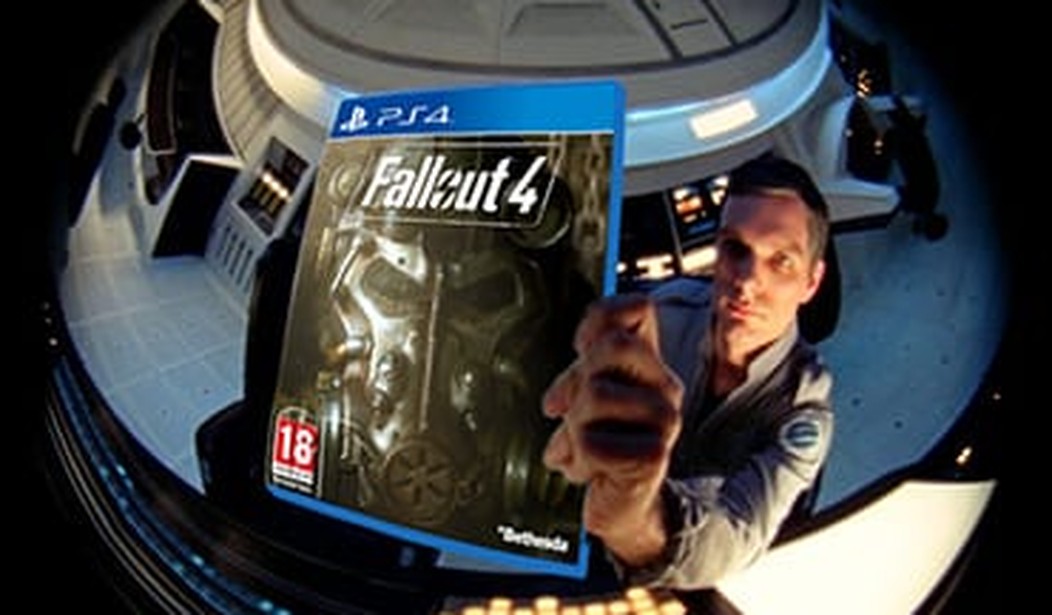…as in, How can you tell any special difference, anyway? It’s a surprisingly knotty question to answer. Objectively speaking, most regular playthroughs of a computer roleplaying game (RPG) — even by ostensibly ‘good’ characters — will exhibit behaviors and activities that in real life would get the committer of them arrested, convicted, and possibly “shot while resisting arrest.” This is an old, old, old complaint about video games; but fear not. I’m not going to go down the far-too-usual twin routes of willfully misunderstanding the nature of escapism and ascribing out-of-game ethical consequences to in-game decisions. Instead, we’re going to talk about how evil is consciously portrayed in computer RPGs, and maybe a bit on what limits there are for players to have their characters go along with said portrayal.
The easiest way that games handle Evil in computer RPGs is to make the whole thing rather linear. Consider, say, Bioware’s Mass Effect trilogy: there’s no real attempt to present both sides. The Reapers are flat-out horrible; here’s some body horror to justify that moral judgment; now go shoot everything that presents itself as a target and don’t worry about whether you made the right call. Easy enough — and effective enough, given good writing. But it’s made clear in that kind of dichotomy that there’s an invisible ceiling there when it comes to morality on the player’s part: Commander Shepard may as be nice or mean as she can manage while she’s fighting the Reapers, but she doesn’t get to switch sides. Similarly: the Knights of the Old Republic games will let you be a Sith. They’ll even let you kill your companions. But you will still be a Sith that fights the main villains.
Of course, a large number of more nuanced Good vs. Evil plot-lines in computer RPGs could more accurately be described as “Us. vs. Them.” The first example that comes to mind on this would be Troika Games’ Vampire the Masquerade: Bloodlines, which is largely about which particular set of inhuman predators with fairly arbitrary checks on their behavior would continue to rule over Los Angeles (note: the repaired version of this game is amazingly good). There’s also the Imperials vs. Stormcloaks Civil War questline in Skyrim, where the fact that the Other Side has Nazi Elves / virulently xenophobic racists working for it only comes up under very carefully controlled circumstances, and never to the point where it might actually interfere with the main character’s life in any possible way. Or, really, a lot of Ubisoft’s Assassin’s Creed games; as the company itself demonstrated in Assassin’s Creed III, the game concept works just as well if you’re playing a Templar instead of an Assassin.
As for actual, yes-I’m-evil-and-I-don’t care gameplay potential? You can do quite a bit of it in many open world games, although in the case of games like the Witcher series it’s more like ‘being an uncaring jackass.’ Bethesda’s Skyrim has at least one definitely atrocious questline (Dark Brotherhood), and its Fallout series give plenty of opportunities to win the game while still relentlessly being a horrible human being*. And Obsidian’s upcoming Tyranny promises to be a game where being evil is the default option for your character.
But for the most part? Computer RPGs tend to shy away from allowing too many conscious choices for simulating evil behavior. Which makes a certain amount of sense, particularly if you happen to believe in any sort of universal morality. Which most people still do. And that is… somewhat reassuring, actually.
*There is one particular meta-game moment in Fallout 4 that still elicits a reaction to me, every time I play through it. [SPOILERS] You’re sent to the Pickman Gallery to check out a rumor that something bad is happening there — and there is. There’s a guy there (Pickman) who goes out and hunts Raiders (generic bad guys), then uses their blood and corpses to create horrific works of art. And he is absolutely unapologetic about it, because he’s a serial killer that only kills Raiders. Regular non-player characters (NPCs) are perfectly safe from him. …And I can’t make my character kill Pickman, because he pretty much does what my character does every day, only I loot my victims for different raw materials. But what I do is OK, because I only kill things that have red-colored names on the screen. And yes, that’s all very awful in real life.








Join the conversation as a VIP Member